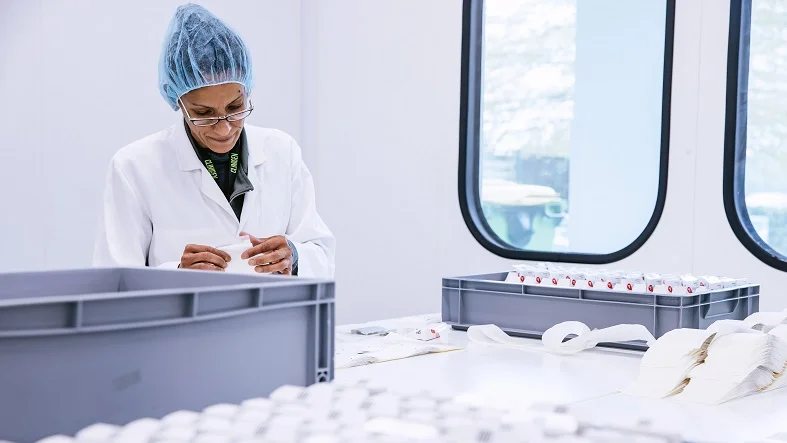In the world of clinical trials, the packaging of investigational products plays a crucial role in the success and integrity of the research. Selecting the right clinical trial packaging partner is essential to ensure that the products are protected, comply with regulatory standards, and meet the specific needs of the trial. This blog explores the key factors to consider when choosing a clinical trial packaging partner, highlighting the importance of making an informed decision.
The Role of a Clinical Trial Packaging Partner
A clinical trial packaging partner is responsible for designing, producing, and managing the packaging of investigational products. This includes ensuring the stability and integrity of the products, providing accurate labeling, and maintaining compliance with regulatory requirements. The right partner can help streamline the trial process, reduce risks, and enhance the overall efficiency and success of the study.
Key Considerations in Choosing a Clinical Trial Packaging Partner
- Expertise and Experience
When selecting a packaging partner, their expertise and experience in the field are paramount. Look for a partner with a proven track record in clinical trial packaging, preferably with experience in your specific therapeutic area. An experienced partner will be familiar with the unique challenges and requirements of clinical trial packaging, and will be able to provide valuable insights and solutions.
- Regulatory Compliance
Regulatory compliance is a critical aspect of clinical trial packaging. Ensure that the packaging partner is well-versed in the regulatory requirements of the regions where the trial will be conducted. This includes understanding guidelines from regulatory bodies such as the FDA, EMA, and other relevant authorities. A partner with a strong compliance history will help avoid potential delays and ensure that the trial proceeds smoothly.
- Quality Assurance
Quality assurance is essential to ensure that the packaging materials and processes meet the highest standards. Investigate the partner’s quality control measures, including their testing and inspection protocols. A reliable packaging partner should have robust quality assurance systems in place, including certifications such as ISO 9001, to guarantee the consistency and reliability of their packaging solutions.
- Customization and Flexibility
Clinical trials often have unique requirements that necessitate customized packaging solutions. Choose a partner that offers flexibility and can tailor their services to meet the specific needs of your trial. This includes the ability to design packaging that accommodates different dosage forms, storage conditions, and blinding requirements. A flexible partner will be able to adapt to changes and provide solutions that align with the evolving needs of the trial.
- Technological Capabilities
The use of advanced technologies can significantly enhance the efficiency and accuracy of clinical trial packaging. Evaluate the partner’s technological capabilities, including their use of automation, electronic data capture (EDC) systems, and temperature monitoring devices. Technologically advanced partners can provide more precise and reliable packaging solutions, reducing the risk of errors and improving overall trial management.
- Supply Chain Management
Effective supply chain management is crucial for the timely and secure delivery of investigational products. Assess the partner’s logistics capabilities, including their experience with cold chain logistics for temperature-sensitive products. A partner with strong supply chain management skills can ensure that products are delivered on time and in optimal condition, minimizing the risk of disruptions to the trial.
- Communication and Collaboration
Successful clinical trials require seamless communication and collaboration between all stakeholders. Choose a packaging partner that prioritizes clear and open communication, and is willing to work closely with your team throughout the trial. A collaborative partner will be more responsive to your needs and able to address any issues that arise promptly.
- Cost Considerations
While cost should not be the sole determining factor, it is an important consideration. Evaluate the partner’s pricing structure and ensure that it aligns with your budget. Keep in mind that the cheapest option may not always be the best in terms of quality and reliability. Aim for a balance between cost-effectiveness and high-quality service.
Making an Informed Decision
Selecting the right clinical trial packaging partner involves careful consideration of various factors. Start by conducting thorough research and seeking recommendations from industry peers. Request detailed proposals and evaluate potential partners based on their expertise, regulatory compliance, quality assurance, customization capabilities, technological advancements, supply chain management, communication skills, and cost structure.
Conclusion
Choosing the right clinical trial packaging partner is a critical decision that can significantly impact the success of your clinical trial. By considering factors such as expertise, regulatory compliance, quality assurance, customization, technology, supply chain management, communication, and cost, you can make an informed decision that ensures the integrity and efficiency of your trial. A reliable and experienced packaging partner will help safeguard your investigational products, support regulatory compliance, and contribute to the overall success of your clinical research.



